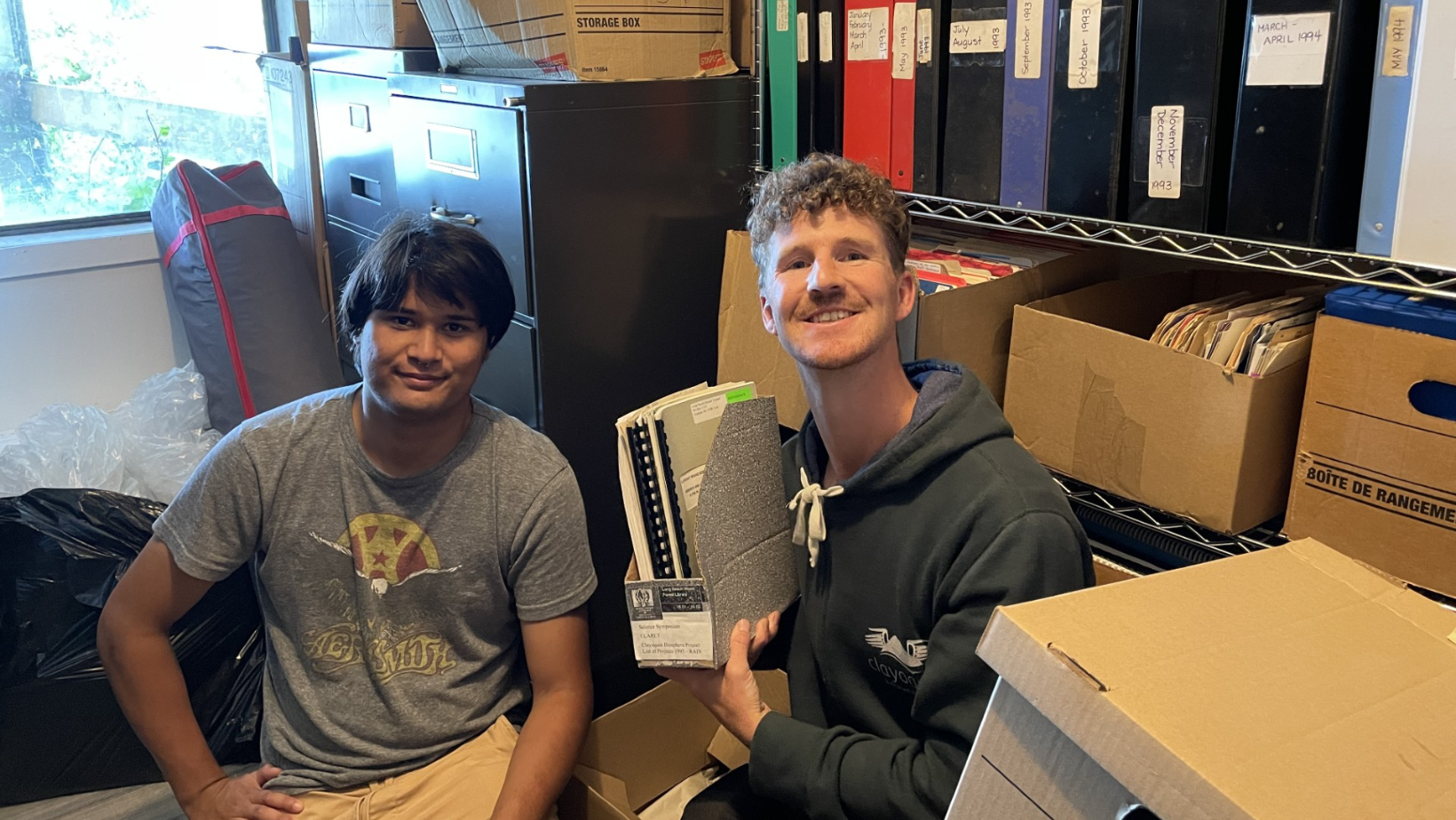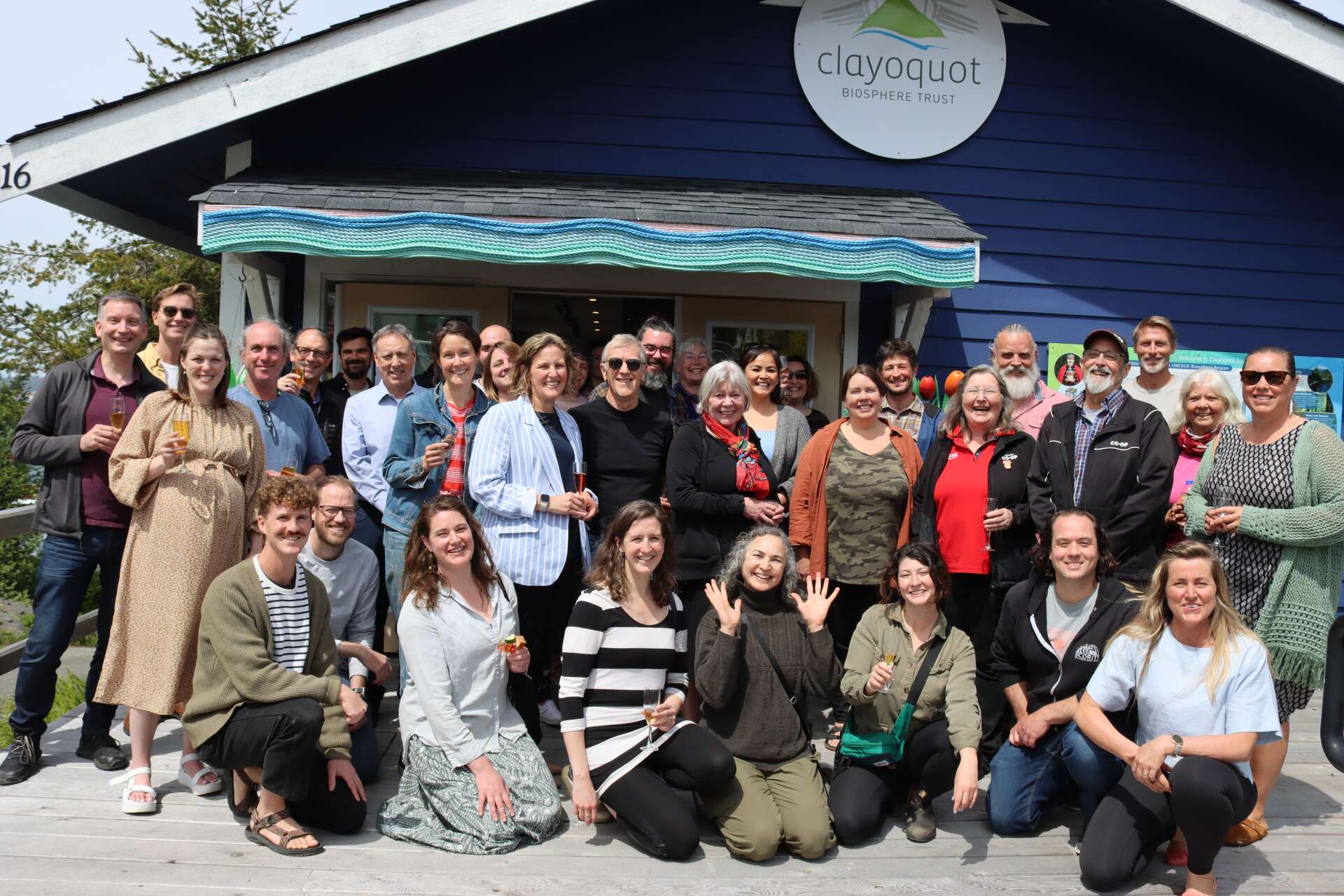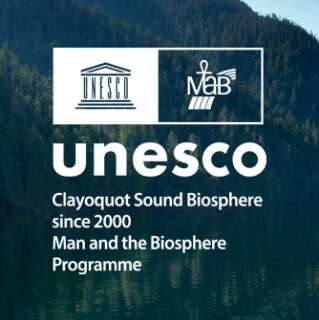Preserving the Past: The Clayoquot Archive Digitization Project

Deep down in the basement of the Clayoquot Biosphere Trust office, you can find an archive containing hundreds of documents collected throughout the “war in the woods” era from the 1980s into the early 2000s. Think of it like the “paper-trail” of a nationally and globally significant regime shift from the colonial resource economy into the modern era. It’s an invaluable reference to a time when nuučaan̓uł (Nuu-chah-nulth) communities, tiny logging and fishing towns, municipal, provincial, and federal governments were all trying to figure out a sustainable way forward.
Documents include:
- Community conference proceedings
- Academic and citizen science/natural history observations
- nuučaan̓uł perspectives contributed to the Clayoquot Science Panel
- Community planning documents
- News clippings
- Advocacy media from logging companies and environmentalists
- And much more!
Most of the archives were collected through several long-term projects, such as:
- The Clayoquot Alliance on Research Education and Training (CLARET), hosted by the University of Victoria
- The Long Beach Model Forest Society, a Ucluelet-based non-profit that was active in the 90s and early 00s
- The Clayoquot Biosphere Project, a Tofino-based non-profit that led community-based ecosystem research and knowledge-sharing
We’re excited to share that we’re digitizing large parts of the collection. The soon-to-be-built Biosphere Centre will also include purpose-built archive space to ensure it’s easy for people to access the physical documents. While the archive is not yet online, you can access a complete listing of the archive contents by emailing colin@clayoquotbiosphere.org.
Why is this history important?
The “war in the woods” gathered national and global attention, signaling the beginning of Canada’s shift away from a simple resource extraction economy and highlighting the tensions between small Indigenous and settler communities, large governments, corporations, and the politics between them. The archive contains grass-roots community-generated records; the people involved in the tension knew the significance of their work and kept detailed records documenting what was going on. At the time, the Long Beach Model Forest and the CLARET project both started libraries and a catalogue system to “harvest” the stories/proceedings/data/research/tension so it could be learned from.
However, both those projects closed in the early 2000s, and their collections were transitioned to the Clayoquot Biosphere Trust. Much has changed in the region in the first two decades of the 21st century. While the “war in the woods” era may be understood at a high level by Canadians, British Columbians, and local residents, the specific conversations, tensions, projects, research, and community spirit of the era are remembered by an increasingly few number of residents who were there at the time. The collection is particularly valuable as it contains:
- Baseline environmental data relevant for researchers and project managers doing contemporary environmental work
- Uniquely-localized political documentation of a major social-environmental-political regime shift that swept Canada and the colonial world
- Examples of Indigenous and settler communities coming together for shared understanding around resource use
- Examples of the social, economic, and political impact of watershed court rulings around Indigenous Title (Meares Island Case, 1985)
Here's a sneak peek of what can be found in the archive:
- Meares Island News - Summer 1985
- Letter from MacMillan Bloedel to Ucluelet Mayor and Council - Spring 1997
As we develop the digital and physical systems to make the archive more accessible, we’re excited to keep adding to the collection and connecting the documents to ongoing projects in the region. If you’re interested in learning more about the archive project, email colin@clayoquotbiosphere.org.

